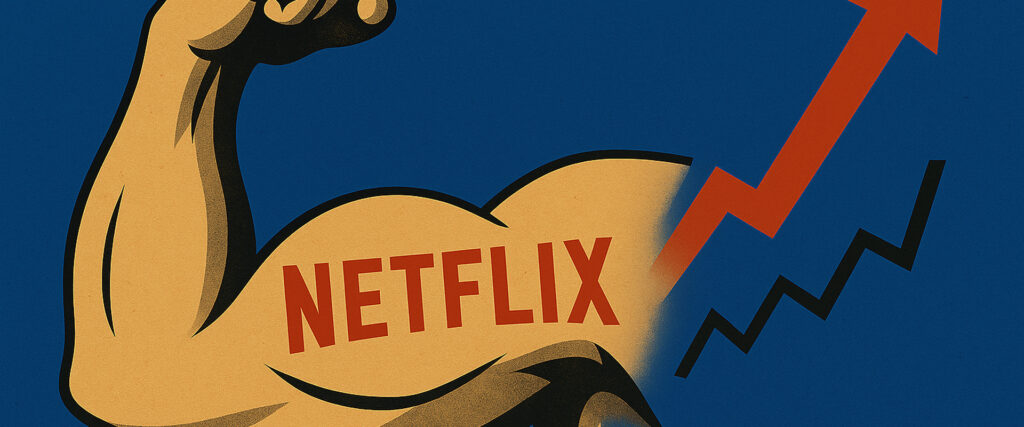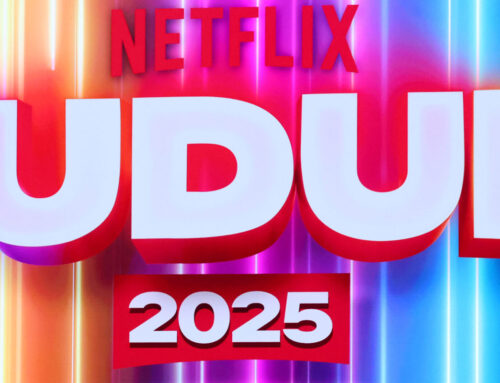Tariffs and Media: Economic Impact Concerns Greater Than Direct Tariff Effects
The recent tariffs imposed by President Donald Trump, which have triggered a global market downturn, will also impact Hollywood’s film industry and the media sector in general. According to analysts, the damage won’t be so much direct as it will be a consequence of a potential economic slowdown.
“Tariffs won’t cause much direct harm to media and entertainment companies,” stated Matthew Dolgin, senior analyst at Morningstar. Unlike companies such as Roku, most firms in the sector “don’t rely much or at all on selling physical goods.” However, these businesses depend directly on consumer spending, so “economic weakness resulting from tariffs could impede business.”
Ripple Effects on Economy and Consumer Spending
The recent wave of sell-offs has hit some sector stocks hard, with Disney, Live Nation, Warner Bros. Discovery, and Roku recording losses equal to or greater than those of the general market. For Disney, parks and experiences generate most of its profits. A recession would likely depress tourism and reduce attendance at Disney parks. Beyond economic weakness, Disney risks receiving fewer international tourists in the US, particularly from Canada, due to cooled foreign relations. Live Nation has similar exposure, as concert attendance is a luxury that consumers could pull back from if needed. Warner’s underperformance is primarily related to its debt burden, as many stocks of highly leveraged firms are weak, perhaps due to fears of tightening credit. CJ Bangah, head of telecommunications, media, and technology practice at PricewaterhouseCoopers, emphasizes that “companies hit by higher tariffs won’t absorb those costs, which would mean higher prices for consumers. And among consumers, one of the first places they’ll spend less is on media and entertainment.”
Advertising Pressure and the Uneven Distribution of Pain
While a slowdown in consumer spending would directly affect subscription services and theme parks, analysts warn that advertising-driven revenue could be even more vulnerable. In this environment, brands are expected to prioritize performance-based, measurable ad formats, shifting budgets away from traditional television and broad brand campaigns. As highlighted in a recent MoffettNathanson report, this dynamic favors digital platforms and puts legacy media companies—those most reliant on linear ad models—at greater risk.
According to 2024 estimates, ad revenues account for 39% of Fox’s, 35% of Paramount’s, and 21% of Warner Bros. Discovery’s total income. By contrast, Comcast and Disney are less ad-dependent (13% each), but face added exposure in theme parks, with Disney earning a combined nearly 50% of its revenue from ads and parks—a dangerous double hit in a recession scenario.
As a veteran producer put it, “Three strikes and we’re out”—referring to the potential triple blow of Covid disruptions, labor strikes, and a recession triggered by tariffs. The resulting market turbulence has reignited fears across the entertainment industry, particularly as it heads into the crucial advertising upfronts.
Potential Repercussions on the European Market
There could be other ripple effects. As European countries grapple with the economic effects of tariffs and the implications of the United States’ new approach to international conflicts, “sentiment surrounding American films and media could change among European audiences,” said Maggie Switek, economist and senior research director at the Milken Institute.
Outlook for Investors
Morningstar is not currently adjusting any fair value estimates for media and entertainment companies due to multiple areas of speculation about resulting economic effects. However, a recession would dampen near-term forecasts and could slightly lower fair value estimates for many of these companies.
Disney, with an estimated fair value of $125, should see its business cool in a recession, but according to Morningstar, the stock is already adequately pricing in this risk. At current levels, the improvement in the company’s streaming business offsets potential weakness in the experiences sector.
Warner’s recent streaming success should also persist, allowing the company to meet its obligations, with a fair value estimate of $20. Live Nation is currently trading at its fair value estimate of $130, which however does not account for recession risk.
Before Trump’s tariff announcement, US consumer confidence was already declining, with the Conference Board’s Consumer Confidence Index dropping 7.2 points in March, marking the fourth consecutive month of decline. The tariff announcement has “injected another round of turbulence into the markets, which will likely be further reflected in consumer sentiment.”
Source: Morning Star
Share:
The recent tariffs imposed by President Donald Trump, which have triggered a global market downturn, will also impact Hollywood’s film industry and the media sector in general. According to analysts, the damage won’t be so much direct as it will be a consequence of a potential economic slowdown.
“Tariffs won’t cause much direct harm to media and entertainment companies,” stated Matthew Dolgin, senior analyst at Morningstar. Unlike companies such as Roku, most firms in the sector “don’t rely much or at all on selling physical goods.” However, these businesses depend directly on consumer spending, so “economic weakness resulting from tariffs could impede business.”
Ripple Effects on Economy and Consumer Spending
The recent wave of sell-offs has hit some sector stocks hard, with Disney, Live Nation, Warner Bros. Discovery, and Roku recording losses equal to or greater than those of the general market. For Disney, parks and experiences generate most of its profits. A recession would likely depress tourism and reduce attendance at Disney parks. Beyond economic weakness, Disney risks receiving fewer international tourists in the US, particularly from Canada, due to cooled foreign relations. Live Nation has similar exposure, as concert attendance is a luxury that consumers could pull back from if needed. Warner’s underperformance is primarily related to its debt burden, as many stocks of highly leveraged firms are weak, perhaps due to fears of tightening credit. CJ Bangah, head of telecommunications, media, and technology practice at PricewaterhouseCoopers, emphasizes that “companies hit by higher tariffs won’t absorb those costs, which would mean higher prices for consumers. And among consumers, one of the first places they’ll spend less is on media and entertainment.”
Advertising Pressure and the Uneven Distribution of Pain
While a slowdown in consumer spending would directly affect subscription services and theme parks, analysts warn that advertising-driven revenue could be even more vulnerable. In this environment, brands are expected to prioritize performance-based, measurable ad formats, shifting budgets away from traditional television and broad brand campaigns. As highlighted in a recent MoffettNathanson report, this dynamic favors digital platforms and puts legacy media companies—those most reliant on linear ad models—at greater risk.
According to 2024 estimates, ad revenues account for 39% of Fox’s, 35% of Paramount’s, and 21% of Warner Bros. Discovery’s total income. By contrast, Comcast and Disney are less ad-dependent (13% each), but face added exposure in theme parks, with Disney earning a combined nearly 50% of its revenue from ads and parks—a dangerous double hit in a recession scenario.
As a veteran producer put it, “Three strikes and we’re out”—referring to the potential triple blow of Covid disruptions, labor strikes, and a recession triggered by tariffs. The resulting market turbulence has reignited fears across the entertainment industry, particularly as it heads into the crucial advertising upfronts.
Potential Repercussions on the European Market
There could be other ripple effects. As European countries grapple with the economic effects of tariffs and the implications of the United States’ new approach to international conflicts, “sentiment surrounding American films and media could change among European audiences,” said Maggie Switek, economist and senior research director at the Milken Institute.
Outlook for Investors
Morningstar is not currently adjusting any fair value estimates for media and entertainment companies due to multiple areas of speculation about resulting economic effects. However, a recession would dampen near-term forecasts and could slightly lower fair value estimates for many of these companies.
Disney, with an estimated fair value of $125, should see its business cool in a recession, but according to Morningstar, the stock is already adequately pricing in this risk. At current levels, the improvement in the company’s streaming business offsets potential weakness in the experiences sector.
Warner’s recent streaming success should also persist, allowing the company to meet its obligations, with a fair value estimate of $20. Live Nation is currently trading at its fair value estimate of $130, which however does not account for recession risk.
Before Trump’s tariff announcement, US consumer confidence was already declining, with the Conference Board’s Consumer Confidence Index dropping 7.2 points in March, marking the fourth consecutive month of decline. The tariff announcement has “injected another round of turbulence into the markets, which will likely be further reflected in consumer sentiment.”
Source: Morning Star









